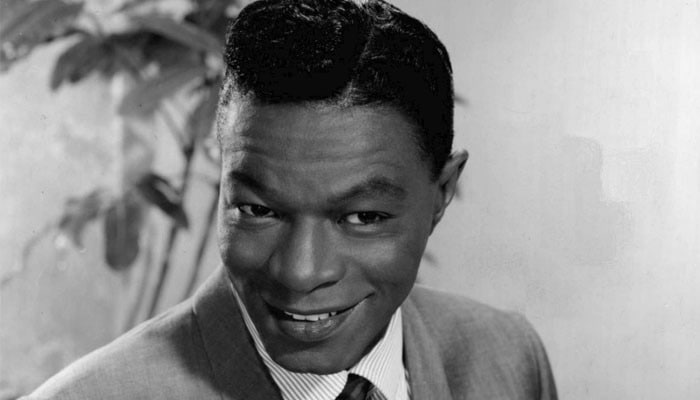
© Public Domain
The current COVID-19 pandemic is a challenging time for people across the world. The lockdown in the UK means everyone is barred from seeing family and friends, other than those living in the same household. Coupled with the lack of sporting events and no social activities, it's no surprise people are feeling stressed. Despite everything, one thing you can be sure of is that the indomitable British spirit will come shining through. People are posting videos and photos all over social media, showing how they are keeping fit and entertaining themselves at home. The message they are promoting is to "keep smiling" and look forward to a brighter tomorrow. Smiling through adversity The message of smiling through adversity has been around for generations and is personified by the famous song, Smile, sung by the great vocalist Nat King Cole, who tells us, "Smile though your heart is breaking." It became Cole's signature tune of the 1950s, but its origins may come as a surprise. The music was written two decades earlier by the famous silent film star, Charlie Chaplin, who was a talented musician and composer, as well as a genius of the silver screen. Chaplin, born in London in 1889 to an impoverished family, went to the United States at the age of 19 with a troupe of touring actors. He was spotted by Keystone Studios and rose to fame as a comedy star of the silent era. Although his on-screen character, The Tramp, made him famous, he was also a talented self-taught pianist, violinist and cellist. He wrote the music for Smile in 1936 for his film, Modern Times, in which his Tramp character struggled to survive in the modern industrial world. Chaplin always attached great importance to the musical score of a film, realising it could make or break it. He took a greater interest in this area as his career progressed, even though he wasn't a trained musician and couldn't read sheet music. Nat King Cole The lyrics for Smile were written in 1954 by songwriting duo John Turner and Geoffrey Parsons. They wrote classic lines such as, "When there are clouds in the sky, you'll get by if you smile." Although the song's origins date from the 1930s, it will be forever linked to Nat King Cole, thanks to his smooth vocal style, encouraging people to "light up your face with gladness" and "hide every trace of sadness". He was the first artist to record the song with lyrics, although multiple cover versions have been recorded since. It was an ideal vocal for Cole, who was known in his early career as a leading jazz pianist, rather than a singer. Born in 1919 in Alabama, the son of a Baptist minister, Edward Coles, he was one of three brothers who all pursued musical careers. He learned to play the organ through his mother, Perlina, who was a church organist, giving his first solo performance when he was just four years old. He began taking formal lessons when he was 12. As a teenager, he would sneak out of the house to go to nightclubs and listen to the great artists of the era, such as Louis Armstrong and Earl Hines. At 15, Cole dropped out of high school, forming a band with his brother Eddie, who played bass. They formed a sextet with other musicians and signed for Decca in 1936, going on to release two singles as Eddie Cole's Swingsters. Chart success When Nat King Cole recorded Smile as a solo artist in September 1954, he had a big hit, reaching number two in the UK singles chart and number 10 in the US Hot 100 singles chart. First released as a 10-inch single, its popular lyrics encouraged people to banish the blues. "You'll find that life is still worthwhile, if you just smile," he told fans. "Maybe tomorrow, you'll see the sun come shining through." After Cole's massive success with Smile, there were plenty of cover versions in tribute to the great vocalist. After Cole's untimely death from cancer in 1965, at the age of only 45, Rat pack singer Sammy Davis Jnr recorded a cover version of Smile as part of a tribute album, The Nat King Cole Songbook, the same year. It was also recorded by Michael Jackson on his album, History: Past, Present and Future, in 1995. The song was on the soundtrack of the 2003 film, Mona Lisa Smile. On 18th April 2020, Lady Gaga sang Smile during the One World: Together at Home online concert to help people get through the coronavirus crisis. She coordinated with World Health Organisation leaders to stage the concert, which featured more than 70 celebrities from all over the world, who honoured our brave healthcare workers fighting against the coronavirus pandemic. The song has become a symbol of fighting against adversity in the modern era, more than 80 years after Chaplin first wrote the music. Keep smiling! MA Griggs' affordable range of country clothing will help to make you smile. See our website for our revised trading information during the COVID-19 crisis.




